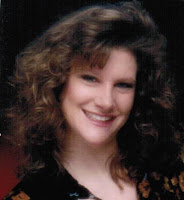Hopefully, dispatch will be able to provide us with the type of EMS Call we’re responding to, and Calls fall into two categories:
1) Trauma: Injuries caused by trauma – Motor vehicle collisions, falls, bicycle accidents, motorcycle accidents, sporting incidents, gun shot wounds, stab wounds, burns, etc.
2) Medical: MI (myocardial infarction – heart attack), hypoglycemia (low blood sugar), seizure, hypertension (high blood pressure), dyspnea (shortness of breath), abdominal pain, etc.
Medical is tricky because, for example, the causes of abdominal pain are numerous, ranging from abdominal aortic rupture to ectopic pregnancy, so it’s our job to place the puzzle pieces together to diagnose the medical condition in order to best treat the patient.
On the other hand, trauma is difficult since we may treat multiple severe issues on one patient as well as treat multiple patients with an array of issues in a chaotic situation.
Types of Calls:
1) Hemorrhage (bleeding)
2) Shock (hypoperfusion – lack of sufficient blood flow)
3) Fall (any type, from falling 50+ stories to slipping in the shower)
4) Stabbing
5) GSW (gun shot wound)
6) Burn
7) Soft tissue injury
8) Musculoskeletal injury
9) Head injury
10) Spinal injury
11) MVC (motor vehicle collision)
12) MCI (mass/multiple casualty incident)
13) Bicycle, motorcycle or ATV accident
14) Cardiac
15) Cardiac arrest
16) Respiratory distress
17) Apnea (respiratory arrest)
18) Anaphylaxis shock (severe allergic reaction)
19) Unconscious patient (and unknown reason to bystanders on scene)
20) Possible hypoglycemia (low blood sugar on a known diabetic patient)
21) Overdose (alcohol, drugs, and medications)
22) Poisoning
23) Hypotension (low blood pressure) or hypertension (high blood pressure)
24) CVI (cerebral vascular incident – stroke)
25) Seizure
26) Syncope (fainting)
27) Acute abdominal pain
28) Submersion, drowning and diving emergencies
29) Behavior/psychological/mental/AMS (altered mental status)
30) Obstetric and gynecology
31) Hypothermia or hyperthermia
32) Etc.
In the times when inaccurate information is given to us by dispatch for various reasons (see my post – EMS and Dispatch), the type of Call dispatched may not be the true situation.
For example:
1) Hemorrhage Calls can be anything from a simple nosebleed to multiple gushing wounds and an amputated limb.
2) A seizure Call: The patient (alone in a room) is suffering a MI (heart attack) and falls unconscious, hitting his/her head on an object on the way to the ground, and the head trauma causes a seizure. A bystander found the patient seizing, but when that bystander spoke with 911 they were completely unaware of the myocardial infarction, the fall, and the trauma to the back of the patient’s head. So, this Call is actually both a medical and a trauma Call.
3) The Call is dispatched as a cardiac, but on-scene we find the patient is suffering with chest pains and abdominal pains due to a serious fall, which caused multiple abdominal and chest injuries, so the Call is actually a trauma Call not a medical Call.
4) The patient is behaving as if he/she ingested, inhaled, or injected PCP, but actually they’re hyperglycemic (high blood sugar)
Can you think of other scenarios where the Call dispatched is not the true situation?
Thank you in advance for reading and for your participation and comments. If you have any questions, please do not hesitate to ask.
****************************************************************************
After majoring in communications and enjoying a successful career as a travel agent, Dianna Torscher Benson left the travel industry to write novels and earn her EMS degree. An EMT and Haz-Mat Operative in Wake County, NC, Dianna loves the adrenaline rush of responding to medical emergencies and helping people in need, often in their darkest time in life. Her suspense novels about characters who are ordinary people thrown into tremendous circumstances, provide readers with a similar kind of rush. Married to her best friend, Leo, she met her husband when they walked down the aisle as a bridesmaid and groomsmen at a wedding when she was eleven and he was thirteen. They live in North Carolina with their three children. Visit her website at http://www.diannatbenson.com/
After majoring in communications and enjoying a successful career as a travel agent, Dianna Torscher Benson left the travel industry to write novels and earn her EMS degree. An EMT and Haz-Mat Operative in Wake County, NC, Dianna loves the adrenaline rush of responding to medical emergencies and helping people in need, often in their darkest time in life. Her suspense novels about characters who are ordinary people thrown into tremendous circumstances, provide readers with a similar kind of rush. Married to her best friend, Leo, she met her husband when they walked down the aisle as a bridesmaid and groomsmen at a wedding when she was eleven and he was thirteen. They live in North Carolina with their three children. Visit her website at http://www.diannatbenson.com/



















A good working list for anyone writing an EMS scene. Thanks Dianna!
ReplyDelete